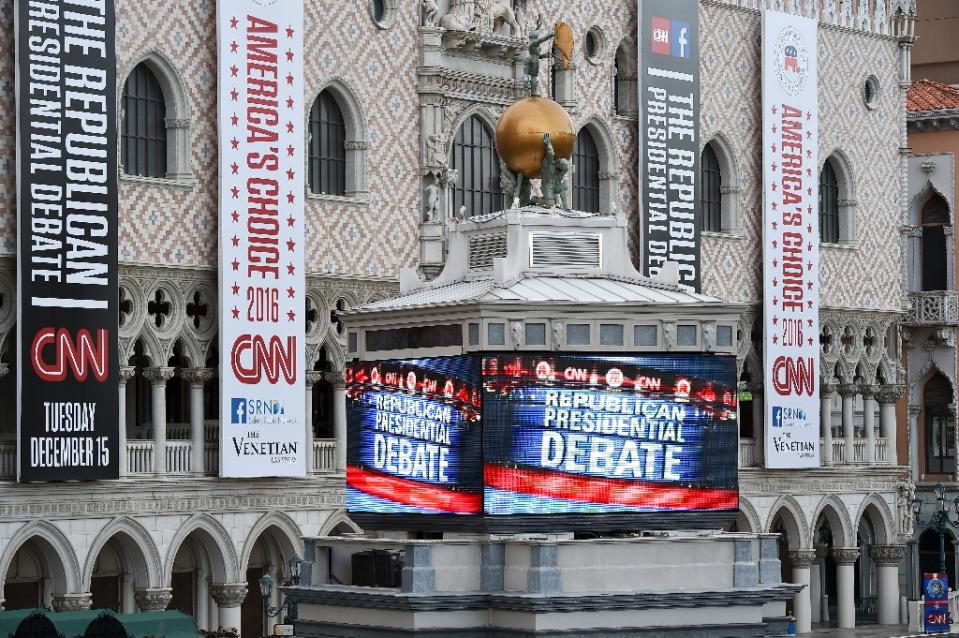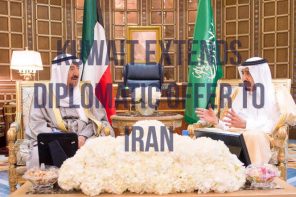The Republican Debate in Las Vegas Tuesday night brought about strong challenges to Trumps rhetoric and a clear division on how to handle terror threats in the United States and abroad. Here are two clips from the debates.
The Republican presidential field agreed easily enough Tuesday night on the imperative of defeating the threat from Islamic State. They had much more trouble agreeing on whether the most important tool in that fight is a plan, or an attitude.
From The WSJ:
Sens. Marco Rubio and Ted Cruz came to the stage offering detailed plans, as did former Florida Gov. Jeb Bush and former Hewlett-Packard CEO Carly Fiorina. They clashed on the details of those plans, particularly when the two senators disagreed on whether Mr. Cruz had undermined the effort to collect intelligence on terror programs by voting to curtail a program for gathering Americans’ phone data.
But Donald Trump, still the leader of the Republican pack, offered less in the way of an agenda for defeating Islamic State, also known as ISIS. More important, he said, is simply a hard-nosed attitude.
“The problem is we need toughness,” he said at one point. “We need tough people.”
Republican candidates disagreed over strategies to defeat Syrian President Bashir al Assad and whether or not an overthrow of of the leader is wise. Photo: AP
He said he was willing to shut down part of the Internet to stop terrorists from communicating with one another, but he was unclear on what that meant. He said he would enlist “brilliant people” to figure out how to stop their communications without interfering with the communications of others.
He reiterated his desire to suspend letting Muslims enter the country to keep out the threat of Islamic extremism, but he insisted that isn’t a formula for walling off America.
“We are not talking about isolation,” Mr. Trump said. “We’re talking about security. We are not talking about religion. We are talking about security.”
And that brought an exasperated response from Mr. Bush, who seemed more agitated than ever before in the campaign. Such proposals aren’t “serious,” he said. “We can’t disassociate ourselves from peace-loving Muslims. If we expect to do this on our own, we will fail.”
Of Mr. Trump, he declared: “He is a chaos candidate. He would be a chaos president.”
Related
The exchanges in many ways captured the tenor of the entire Republican race to date. Candidates such as Mr. Bush have struggled to offer conventional answers in an unconventional year. Mr. Trump, meantime, offers little of the conventional formulas or multipoint plans that once were campaign staples, focusing instead on simply offering himself as the plan of action.
The more serious policy debate was left to Messrs. Cruz and Rubio, who have emerged as the main contenders for the space just behind Mr. Trump. Mr. Cruz argued, as he has for the past several weeks, that his formula for fighting ISIS would be a massive air campaign that would cripple the organization in its home territory of Iraq and Syria.
But Mr. Rubio, of Florida, countered that Mr. Cruz, of Texas, has voted against precisely the kinds of defense spending bills needed to finance that kind of air campaign. And, as he has on the campaign trail, he argued that Mr. Cruz has weakened terror defenses at home by undermining phone surveillance programs.
That argument points to the deepest fight not just among the candidates but within the Republican Party on national security, which is whether individual liberties have to be sacrificed to some extent to help law-enforcement authorities fight terror. On that point, Sen. Rand Paul of Kentucky, who has faded as a political force, again pursued the argument for valuing liberties.
Yet two candidates on the stage—not just Mr. Trump but New Jersey Gov. Chris Christie—seemed to have little patience for the fine points of that debate. Mr. Christie, who has found his voice amid the debate over terrorism, argued that such Washington debates amounted to arguing about “angels on the head of a pin from people who have never had to make an executive decision.”
But the more open rift was between Mr. Trump and Mr. Bush, who appeared to have finally decided to stop tiptoeing around the billionaire who has eclipsed his campaign.
Mr. Trump hasn’t offered a serious plan for prosecuting the war against ISIS, Mr. Bush insisted, arguing that bluster isn’t a substitute for a substantive plan. “Donald you’re not going to be able to insult your way to the presidency,” he said. “That’s not going to happen.” It was hard to avoid the feeling that Mr. Bush had been waiting a long time to say that.






